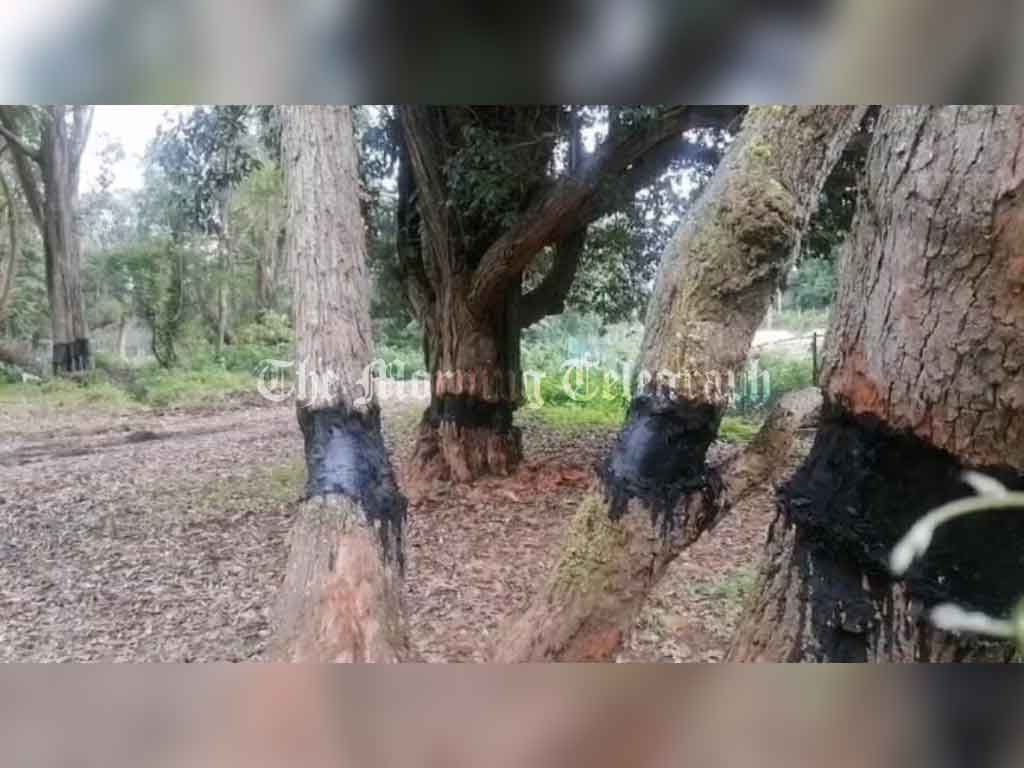
Nuwara Eliya Regional Secretary, Mr. Pradeep Danansooriya, has announced a formal investigation into the alleged destruction of 50 big trees, some over 100 years old, on the grounds of the Nuwara Eliya Golf Course. Local residents claim these trees, including rare species like gandis, red gandis, and cypress unique to the region, have been intentionally damaged through methods such as bark stripping and the application of black oil, which leads to their demise.

The destruction of these trees has sparked outrage among residents, who allege the governing authorities took these steps to circumvent restrictions on cutting down the big trees, initially planted to enhance the area’s natural beauty. The trees are located along the golf course’s perimeter, including the boundary near Nuwara Eliya Senpati Madura.

Mr. Danansooriya confirmed that no authorization was granted by the government or local officials to remove or harm these trees. He emphasized that instructions have been issued to the governing authority of the Nuwara Eliya Golf Club to halt any further action until the investigation is concluded.

The controversy brings attention to the 300-acre golf course, a landmark owned by the Nuwara Eliya Municipal Council but leased to the Nuwara Eliya Golf Club for 99 years. Former Nuwara Eliya Mayor and golf club member, Mr. Mahinda Dodampegamage, explained that the land, which enjoys tax exemptions, is a significant asset to the region’s tourism industry. However, he criticized its current use as catering primarily to an elite clientele from Colombo, limiting its broader potential.
Dodampegamage also revealed that a proposal by former cricketing icon Kumar Sangakkara to utilize part of the golf course for a project aimed at attracting one million foreign tourists annually was disregarded by the then-political leadership. He expressed disappointment at the missed opportunity to transform the land into a more inclusive and economically beneficial space.
The investigation will focus on identifying those responsible for the destruction of the trees and evaluating the broader implications for Nuwara Eliya’s environment and tourism sector.




